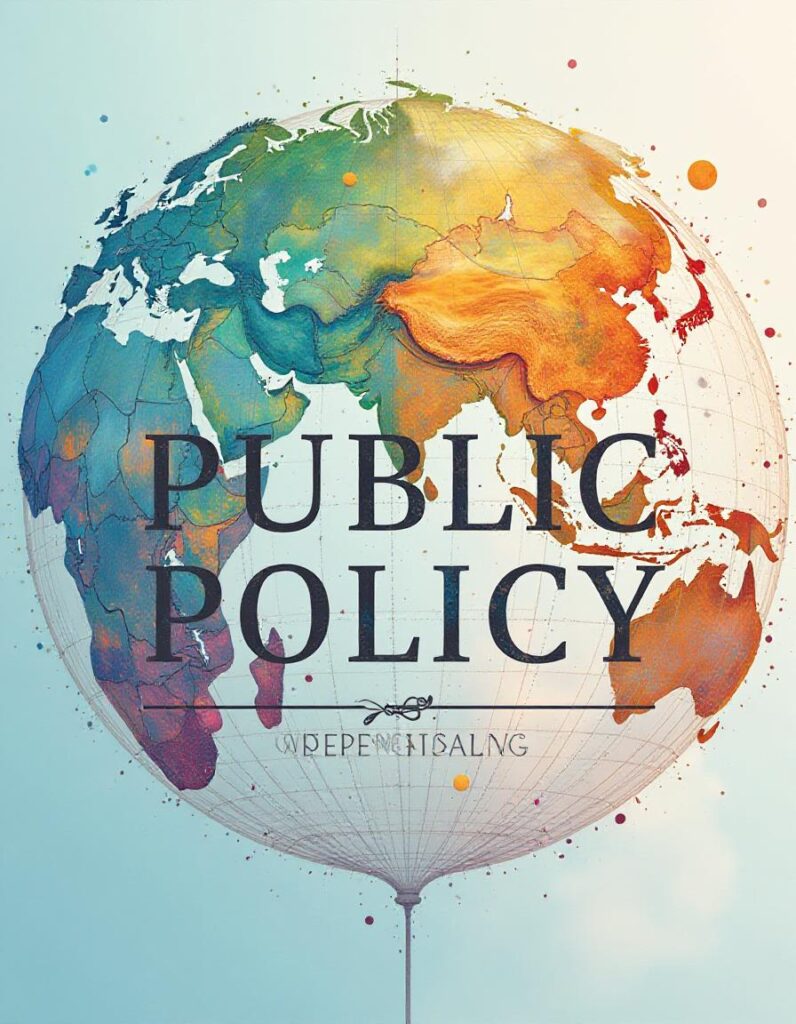Public Policy
- By Agent
You are probably wondering how the government handles and manages the various complex issues such as economic development, access to healthcare, and environmental sustainability. Public policy plays a key role in the making of decisions that shape the future. Anyone curious about the various forces that drive societal and economic change, or an aspiring changemaker, it is essential to have comprehension of the essence of public policy. From decoding the definition to unraveling the impacts, initiative, regulations, and actions plays a major role in completing the puzzle intended to enhance a better tomorrow.
It is for this reason that dennykinsassociates.com strives at sharing knowledge and concepts geared towards understanding public policy.

Public policy is a comprehensive framework of regulations, actions, and laws that the government implements to attain economic and social goals. It is a statement of the commitment and intentions of the government to address a precise problem or issue. Public policy plays a major role in shaping the various decisions of government agencies and officials, and it impacts the economy, politics, and society at large.
Key Attributes of Public Policy
Public policy addresses concerns in various sectors of the economy and society, such as, education, social welfare, environment, and healthcare. Economic conditions, societal values, and political concepts have a major impact on public policy, and this is critical in shaping the future of the country.
Public policy has several key attributes which include:
- Policymaking is an ongoing process that does not have a clear end or beginning, this is because the decisions on who will bear probable burden resulting from the policy an who will benefit are constantly revisited, reassessed, and revised.
- Policy is made on behalf of the “public”.
- Policy is ultimately made by governments, even in cases when ideas come from outside the institution or via interaction of the public and the government.
- Policy is made in response to sort problems or issues that need attention.
- Policy is oriented towards a desired state or goal, like solution to an issue.
- Policy might be in the form of regulation or law, or a set of regulations and laws that govern a particular problem.
- Policy is what the government chooses not to do (implied or to do (actual) regarding a particular problem or issue.
It is clear that there are various issues in the country that require solutions. Additionally, it is vital to understand that some of these issues may be dealt with immediately by involving the private sector, that is, families and individuals, or by the civil society, political, social, or economic organizations or associations.

The Formation Process of Public Policy
There are several processes taken to come up with suitable policies for the good of the society and the economy. They include:
Step 1: Problem Identification
The first step is identification of the issue or problem that needs the intervention of the government. It is at this stage that research is conducted and data is collected to enhance the understanding of the severity of the issue and the scope of the matter. There is need to comprehensively define the issue and how it impacts the society.
Step 2: Setting of the Agenda
Determine the essence of the issue and its priority on the agenda of the policy. Ensure that you consider the social and political context in which the matter exists. And lastly, make the decision on whether the issue should be addressed via regulations, legislation, or other means.
Step 3: Formulation of Policy
This step entails generating various alternative approaches and solutions aimed at addressing the issue. There is need for thorough evaluation of the effectiveness and feasibility of each proposed solution. Additionally, there is need to consider both the long-term and short-term implications of every solution. Finaly, the best solution is selected and a suitable plan is developed to ensure implementation.
Step 4: Decision-Making
At tis stage, the formulated policy is presented to the designated decision-makers. Ensure that you get enough input and appropriate feedback from the various interested parties and stakeholders. Lastly, using all the information you have gathered, make necessary and suitable adjustments and come up with a final decision n on the proposed policy and how it will be implemented.
Step 5: Policy Implementation and Evaluation
Actualize the policy through regulation, legislation, or other means. Ensure adequate monitoring of the policy implementation and make all necessary adjustments. Ensure sufficient assessment of the efficacy and effectiveness of the policy. Ensure that you gather feedback from interested parties and stakeholders and use the information to improve the policy over time.
Which Action Is an Example of Public Policy?
A typical illustration of public policy in action is the implementation of the Universal Health Coverage. When the government commits to ensuring that they provide affordable and accessible healthcare services to all citizens, it is a sign of deliberate policy decision to enhance public health and ensure equitable and improved access to medical care.
The Universal Health Coverage entails the establishment of improved healthcare infrastructure, allocation sufficient financial resources, formulation of practical regulatory framework, and ensuring the provision of vital services like treatment, preventive care, and medication.
By making healthcare a priority to the public and ensuring sufficient and effective implementation of comprehensive policies to ensure universal coverage, the government has the platform and opportunity to effectively address the disparities in access to healthcare, enhance the various healthcare outcomes, and foster social cohesion and inclusion.
Public policy is a vital aspect of governance that fosters societies and largely influences the well-being of communities and individuals. An understanding of the complexities of public policy and its impacts can encourage individuals to actively take part in the policy making process, champion for better and more meaningful reforms, and contribute to the establishment of a more prosperous, just, and sustainable future for everyone.
Any individual or organization that is passionate about making a difference and enhancing he development of a better tomorrow, should consider taking part in public dialogues geared towards enhancing the quality of life of the public. The decisions made today are likely to impact today and tomorrow.
